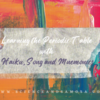Medical Tourism: Traveling Beyond Borders for Health and Pleasure

Patients needing major heart surgery, hip operations , cataracts or even looking for breast augmentation, nose job, body contouring are using the internet to book operations to be carried out thousands of miles away.
Around 8-9 million patients from across the world travel overseas each year to avail treatment. The worldwide medical tourism market is growing at a rate of 15-25%
- Singapore is the most thriving medical tourism center in the South East
- In Latin America, Panama and Costa Rica are becoming well-known tourist spots for medical travelers
- Mexico being close to the US is now one of the top rated medical tourism destinations.
- Malaysia is also a famous destination for medical tourists and travelers
- Another hot spot for medical tourism is India
- Seoul in South Korea is the plastic surgery capital of the world
- South Africa is the first country in Africa to emerge as a medical tourism destination
- India, Malaysia, Singapore, and Thailand are well-established destinations for patients seeking cardiac surgery and orthopaedic surgery
- Italy, already recognized as a major travel destination, offers medical tourists the opportunity to combine treatment with a vacation of a lifetime
- The Malaysian government provides flexible ease of entry for foreign patients entering Malaysia for treatment where visa for medical tourists are extended if needed, from 30 days to 90 days
- Thailand hospitals are among the first in Asia to be internationally accredited. To date, there are 37 hospitals accredited by JCI in Thailand
- The uniqueness of India is its ability to offer holistic medical services such as unani, yoga, meditation, ayurveda, and homeopathic treatments
Medical tourism is defined as the enhancement or restoration of the individual’s health through medical intervention by organized travel outside one’s natural healthcare jurisdiction.

Around 8-9 million patients from across the world travel overseas each year to avail treatment
Medical tourism initially referred to the travel of patients from less-developed countries to developed nations to get treatments which were not available in their country. But today we are seeing people travel from richer to less-developed countries in order to access health services. Such shift is mostly driven by the relative low-cost of treatments in less developed nations, the availability of good quality medical service and increased marketing and online consumer information about the availability of medical services. Other reasons include avoiding long waiting lists and dodging questions from colleagues and family, Lower cost involved in after care.
Some patients, particularly those undergoing plastic surgery, sex change procedures, and drug rehabilitation, choose to go to medical tourism destinations because they are more confident that their privacy and confidentiality will be protected in a faraway setting.
Little bit of history
Medical tourism has started since thousands years ago when Epidauria, a place in the Saronic Gulf where the healing god, Asklepios resides, reached by Greek pilgrims after travelling all over Mediterranean. Thus, Epidauria has been recorded as the original destination of medical tour-ism in medical tourism history.
Why is it called Tourism
Most of the patients club treatment with tourism activities. Travelers take advantage of their visit by sightseeing, taking day trips or participating in any other traditional tourism activities. Patients stay in hospital for short period. Most of their stay is arranged in nearby hotels or resorts. Many a times recuperation program involves spa treatment and travels.

Today we are seeing people travel from richer to less-developed countries in order to access health services. image
The most sought after medical procedures
The most common types of procedures that patients pursue during medical tourism trips are cosmetic surgery, dentistry, organ transplantation, cardiac surgery and orthopedic surgery. Reproductive tourism and reproductive outsourcing are growing in popularity. Chinese medical tourists are already the single largest group using birthright tourism and prefer the US, Hong Kong and Canada to give birth. Anchor babies is the term used for children purposely born in a foreign country that gives citizenship as a birthright. Among the countries that do this are the United States, Canada, Argentina, Brazil, Mexico, Peru and at least 20 others. In the future, there is going to be increased interest in three-person embryo procedures pioneered by the UK and the US.
Top Destinations
Costa Rica, India, Israel, Malaysia, Mexico, Singapore, South Korea, Taiwan, Thailand, Turkey, United States

- Cost factor
- Top quality Healthcare infrastructure
- Demonstrable commitment to international accreditation
- Quality assurance and transparency of outcomes
- Political transparency and social stability
- Great tourism hot spots
- Sustained reputation for clinical excellence
- History of healthcare innovation and achievement
- State-of-the-art medical technology
- Availability of internationally-trained, experienced medical staff
How to ensure access to good quality Hospital
JCI accreditation is one of the main criteria patients use to ensure they are traveling to a hospital with high standards of patient care. Joint Commission is an independent not-for-profit organization that evaluates and accredits more than 15,000 healthcare organizations in the United States. Its international arm (Joint Commission International) has been accrediting hospitals outside the U.S. since the late 90’s.
A British scheme, QHA Trent Accreditation, is an active independent holistic accreditation scheme. Also GCR.org monitors the success metrics and standards of almost 500,000 medical clinics worldwide. The oldest international accrediting body is Accreditation Canada. There is also initiatives to rank hospitals around the world based on patient-reported metrics.
Are agencies important ?
Medical tourism agencies and facilitators are an important part of the medical tourism industry, helping patients to engage in medical tourism. IMTJ maintains a comprehensive directory of medical travel agencies and facilitators. These agencies help in organizing flights, accommodation and even sightseeing. They help to choose the most appropriate hospital.
Medical tourism: Grey area
- In case patient fail to get the promised service or face any kind of health risks, solving it legally becomes an issue as the rules and regulations across nations would be different
- Drugs and Medication may be counterfeit or of poor quality
- Since developed nations have not completely tackled diseases like Malaria, Dengue, Tuberculosis etc, there is chance to get these infections
- Flying immediately after surgery can lead to medical complications
- Inability to speak the native language fluently might increase chance for wrong medication and care
- Psychologically and emotionally, being away from the closest people such as family, spouse, and parents may lead to acquired stress
Transplant traffic

Colombia, India, Pakistan and the Philippines as four of the leading global hot spots for buying and selling human organs image
The World Health Organization identifies Colombia, India, Pakistan and the Philippines as four of the leading global hot spots for buying and selling human organs. Despite legislation intended to prevent the sale of organs in these countries, patients from around the world continue to purchase kidneys in these nations. Medical tourism campaigns exacerbate this problem by marketing ‘all-inclusive’ organ transplant packages to international patients. These operations include kidneys purchased from poor individuals rather than obtained from living donors or deceased persons. Advertising organ transplants to international patients risks increasing rather than curtailing the number of poor citizens selling kidneys to organ brokers.
The desperation of sick patients and scarcity of home bound donors has contributed to the emergence of transplant tourism.









This is a very interesting topic! Very informative and well written. I did not know much about this topic before. Thank you for sharing! ☺
Thank you
That is a lot of interesting information. A friend of mine takes a few trips a year to different parts of the world to provide medial services and training. He really enjoys it and loves experiencing the different countries. Thank you for sharing!
Thank you Mindy
Wow! Very interesting! Honestly, the list in the gray area is enough for me to say, no thank you. And, the buying and selling of human organs … well, it makes me feel sad for someone to be so poor that they sell their organs. Anyway, this is a very informative article!
Thank you Shileen
Thank you.